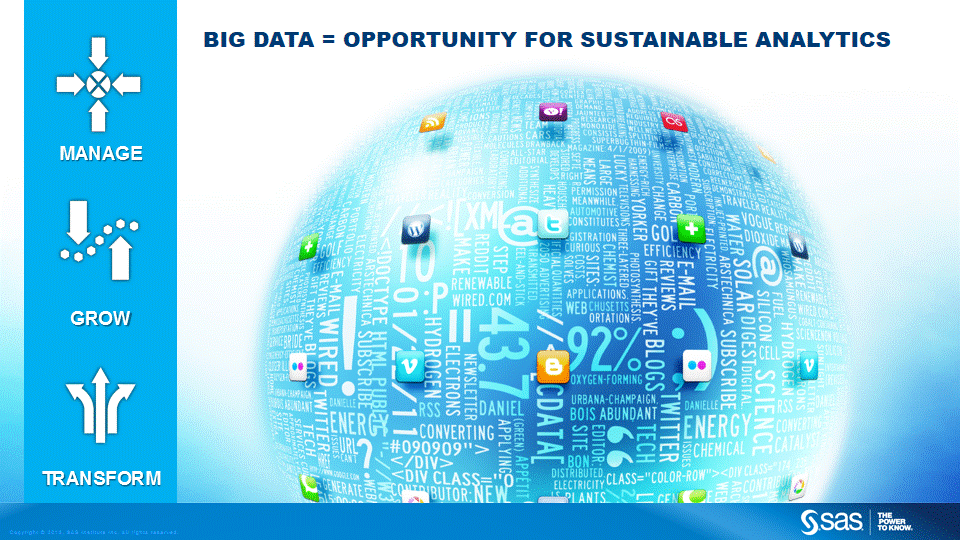I was asked to speak recently on a topic that includes two hyped terms: Big data and sustainability. At the risk of igniting an anti-buzzword campaign, I added a third over-used term to that list: analytics.
Even though individuals and companies use those three words – big data, sustainability, and analytics – multiple times every day, they are confusing (at least) and misunderstood (at worst). Multiple definitions and conflicting vendor pitches don’t provide any hope of clarity. The hype sounds like an old song with a new beat or lipstick on a pig. In fact, taken independently, the terms may seem old hat.
Let’s start with big data. Companies have managed large volumes and varieties of data since the 1960s and dawn of the computing age. Now we have social media data, which can reflect customer sentiment. We have a myriad of sensor data, which informs us about temperature, consumption, humidity, or volumes processed. The velocity of data may be different now, but data storage technologies are rapidly evolving to handle big data. Just ask IBM or SAP or Hadoop.
Next, sustainability. The “green movement” may have its detractors, but there is general consensus that managing to the triple bottom line of people, profit, and planet is good for business and the global community. Sustainability is as often used to describe how a program will continue on in perpetuity as it is used to describe the decisions made when designing a new product or a more livable community.
And analytics. It provides the insight necessary to make data-driven decisions. In fact, due to improved storage capabilities, big data is only a challenge today when the time it takes to derive meaningful insights from data exceeds the time frame in which those insights could be useful. A financial services company's ability to analyze credit card transactions in near real time to stop fraudulent purchases is an example of big data analytics.

In the energy sector, the convergence of these three disciplines provides new opportunities for companies to Manage, Grow and Transform their business.
- Manage. Energy regulations and growing renewables are combining to change market dynamics and make forecasting and risk analytics even more important. Energy companies can use analytics to improve real time energy management and asset reliability, while protecting their revenues. The Economist article titled “How to lose half a trillion euros” indicates the financial pressures utilities face when managing their business.
- Grow. Given the changing business climate, utility companies can turn to analytics for insights on developing new products and services for existing clients, or whether or not to expand into new markets. Energy companies are increasingly turning to social media data, not just as a listening post, but as a channel for customer engagement.
- Transform. This is the opportunity to dominate new markets and new clients, or create a new class of products and services that was previously unavailable. The classic example is AT&T, who transformed from a wireline business to a media provider. Now, the buzz is the “Internet of Things” – a distributed, highly sensored and automated mesh of devices.
All of these categories - manage, grow, transform - have positive impacts on improving the bottom line. Let's hope these concrete applications of “big data analytics” will break through the hype and bring some specific use cases to mind for energy companies.
I have no doubt that great opportunities lie ahead at the nexus of big data, sustainability and analytics. How will your organization use big data analytics to drive new business opportunities?
And is “big data” truly sustainable? This may have to be the topic of a future post …. Contributions welcome!!
